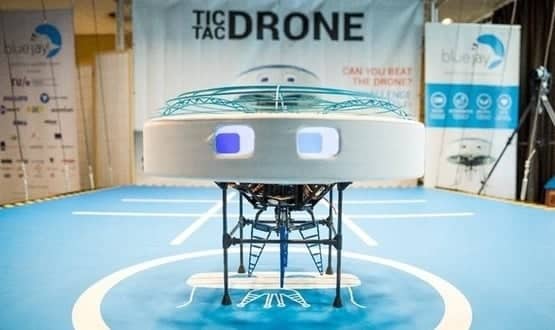June’s mobile and app news in brief covers a European wide call out of digital healthcare reforms, an app that allows you to connect with people with fellow conditions and indoor drones being launched in hospitals.
App connects people with similar conditions
HealthUnlocked is an app that connects you to people who have the same disease or chronic health condition as you. The HealthUnlocked network, which is the largest social network for health in the world, can be used anonymously to ask for advice and support.
Its chief medical officer, Matt Jameson Evans, said that “isolation, barriers and stigma are still the norm in most diseases and conditions, and we know that good technology can change that”.
“Be it about symptoms, side effects or treatment options, we can now connect and match people into safe patient networks using technology geared to their individual needs.”
EU wide digital health call out
In the week Theresa May’s government has begun talks with EU leaders to start the process of Brexit, comes the news of the Digital Health Society Declaration’s launch. Led by the Ministry of Social Affairs of Estonia (who hold the EU Council presidency from July) and the European Connected Health Alliance, it is a call for action about the strategies to help achieve the digital transformation of healthcare systems.
The initiative will be representing policy-makers, citizens, health professionals, scientists, companies and payers, and will be officially presented and signed during the eHealth conference in Tallinn on 16-18 October.
Drones are flying into a Dutch hospital
An indoor drone with the ability to play games with children was launched at a Dutch hospital this week. Philips Lighting demonstrated its prowess at Maxima Medisch Centrum, and showed that it could pick up and deliver objects to a location to assist the less mobile.

Tool to predict bowel cancer survival
Emis Health and the University of Nottingham have worked together to develop a tool that can more accurately predict the chances of bowel cancer survival for both men and women. The web calculator was created using QResearch, bank of anonymised patient data from 1,500 general practices across England through Emis Health’s clinical computer systems.
Julia Hippisley-Cox, a professor at Nottingham, said current methods of estimating survival tend to be unreliable.
“Sometimes patients can be given a fairly misleading and unnecessarily gloomy prognosis based only on the grade and stage of their cancer, only to find that in reality they live much longer than these crude predictions when other information is taken into account”.
“The good news is that this new calculator which doctors and patients can access will offer a far more realistic estimate. We understand that not everyone will want to do this, of course, but some patients are very keen on this approach so it’s an individual choice.”
Spire intends to keep your stress levels down
Spire, a wearable that “tracks physical movement and state of mind”, aims to reduce stress levels. The wearable device tracks your breathing patterns and then sends alerts to your phone to inform you how you are feeling. It does so via different vibrating tones depending on how stressed you are, to advise you to calm down.
“Spire will make you aware of your focus, tension, and level of calmness to help you achieve your personal and professional goals as well as improve your mental and physical well-being”, a Spire spokesperson said.
It is now available from Apple Stores across US and Europe.

